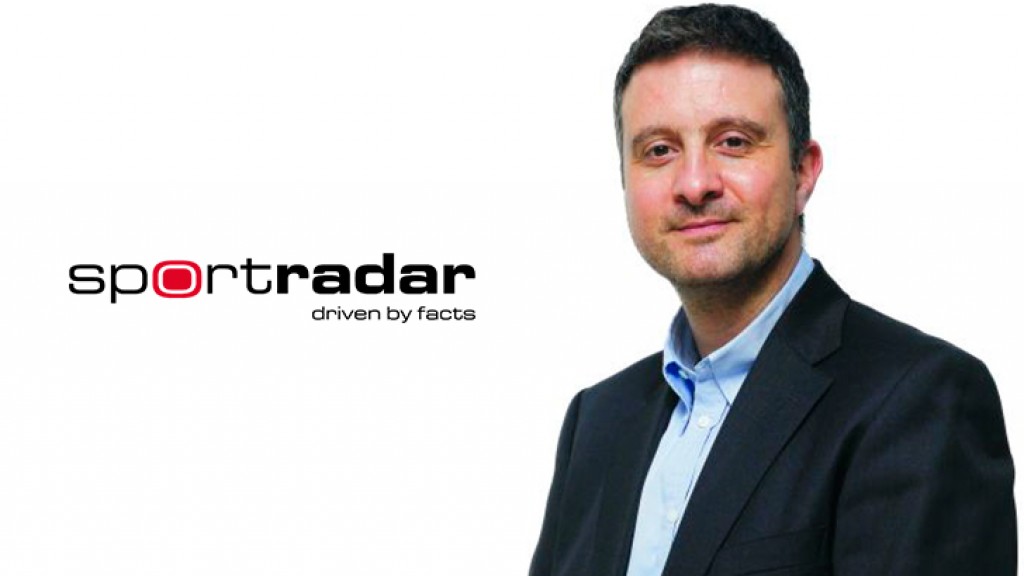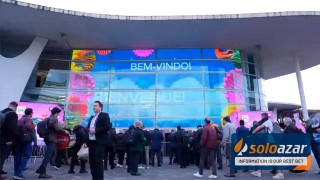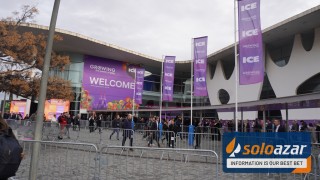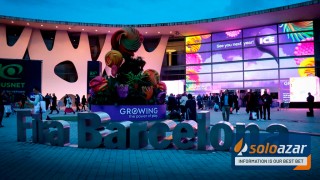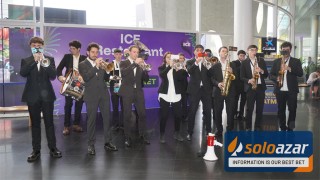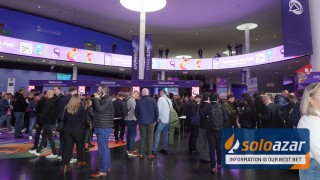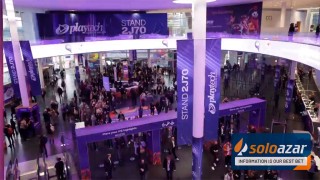Similarly, its reputation as the industry’s premier integrity service provider has grown in recent years, after evidence from Sportradar’s Fraud Detection System (FDS) was used in support of the Court of Arbitration for Sport’s rulings in several match-fixing cases; explicitly affirming the credibility of the work produced by their Integrity Services department. They now provide integrity solutions to more than 75 sports governing bodies and leagues around the world, including iconic global sports brands such as Fifa, the National Basketball Association (NBA), the National Hockey League (NHL) and the International Cricket Council (ICC).
In April 2016, the company confirmed its purchase of the Sportsman Media Group – a group of digital media production companies – including its Austrian over-the-top (OTT) sports streaming platform Laola1.tv. Two years on, the Laola1 digital service makes up just one aspect of Sportradar’s media rights business. The service is unique among the company’s offerings in that its direct-to-consumer model goes against an overall strategy built on providing a range of backend solutions.
“What a lot of people don’t see from the outside is that we produce, we process and we exploit our media rights in many different ways,” explains Lukas Seiler, managing director of Sportradar’s audio-visual strand. “We have our own OTT service – parts of which are client-facing, although most of it is a B2B service; it provides a service to rights holders and broadcasters. We also offer a service to monetise these OTT solutions. The scope of what we do with media rights has really changed and has become much broader than most agencies.”
When Seiler speaks of the versatility of Sportradar’s media rights portfolio, he does so both in the knowledge of the company’s progression from its initial existence as a service provider to betting companies, and in recognition of the importance of Sportsman Media Group in assisting the growth of its rights business.
“Although our roots are in data and data-driven operations, over the last five or six years we have grown our expertise, our video technology in media rights,” he explains. “The acquisition of the Sportsman Media Group really matured our offerings in that area.
“We now service our clients in more or less all commercially relevant areas of media rights exploitation. We have state-of-the-art production – both internal and external – and production logistics services operating on a worldwide basis, a signal distribution department with bespoke client-facing, booking and signal management tools, we globally trade broadcast media rights, as well as building and selling sports betting-related streaming products.”
It is a thorough service. By way of an example, Seiler points to live sports coverage provided to betting and gambling websites, which then stream matches and races in accordance with their relevant betting products. The company has deals with the likes of Bet365 and William Hill, he explains, with Sportradar holding ultimate responsibility for the maintenance of the package.
Regarding the company’s B2B rights agreements, Seiler notes the importance of being flexible and innovative with the rights owned by Sportradar, highlighting a necessity to provide a more creative solution than simply reselling a product. “It’s not just a case of buying the rights and selling them,” he states. “It’s about making a product out of what you’re handling and then selling it. It’s a refinement, a co-production effort that we go through.
“We don’t feel that the future for us is solely in trading something. It’s about building products for and on behalf of our business partners rather than on behalf of our consumers.”
As Seiler says, Laola1.tv is a product that separates Sportradar from many of its competitors in an increasingly flooded industry.
“The main differentiating factor is that we are a B2B company,” he says. “As part of our Sportsman acquisition, we did purchase Laola1.tv, but that is very much focused on one particular market. We have no intention of being a business-to-consumer operator or a business-to-consumer company, in media rights anyway. Everything we do in this space is either acting as an intermediary or as a services company.”
Seiler’s explanation of Sportradar’s unique position in an ever-growing market comes with OTT and traditional linear platforms locked in something of a digital arms race. A host of direct-to-consumer streaming services are now competing for ownership of the same live sports content.

Sportradar relaunched Borussia Dortmund's club OTT platform, BVB-TV.
However Seiler, who has watched the situation develop with interest given Sportradar’s own place within the industry, believes that the nature of the content being created will see little change even as other fundamentals of the media rights game continue to evolve.
“Everybody has been talking about the transition towards a digital marketplace and it is hitting us at full force,” Seiler says. “We are right in the middle of it. Linear broadcasting environments need to adapt to that marketplace and they need to understand the way that they have reached out to clients in the past is also in transition.
“It simply means that they have to adapt the way that they distribute and the way that they address a client to the changing environment. The content that people are looking for is still somewhat similar – maybe not the same but still similar. However, the way that it is distributed and the way that it is brought to clients has changed.”
If deals like Amazon’s breakthrough agreement to stream 20 Premier League matches per year in the UK from 2019 are viewed as watershed moments in the industry, they still should not cause mass concern among linear broadcasters, suggests Seiler.
“I don’t think intimidation should be the right reaction to what we are seeing,” he explains. “Linear broadcasting has been an established business. They have a way of accessing consumers, they have a method by which they can present their viewers with good content.
“What they need to do is adapt – some providers are doing the right thing by driving technology and innovation. None of this is new, but it is materialising because some broadcasters struggle to refinance the rights that the rights holders demand and also because in some countries linear distribution is simply deteriorating.
“Those, really, are the markets where direct-to-consumer OTT solutions grow strong and they are now emerging in the strong and more established environments as well. I think there’s nothing that linear broadcasters have to be fearful of. They simply have to adopt some of the things that these consumer-facing OTT platforms are doing so well: change their mechanisms, change their business models, change the way in which they reach out to clients.

The World Rally Championship sits within Sportradar's media rights portfolio.
“On the basis of what they are good at, that could be quite an exciting development for them as well. There’s nothing to be scared of, so to speak, but they do need to be open-eyed to see what’s coming and you need to modify whatever you’re doing to develop.”
Seiler’s view of the changing media landscape is reflective of the macro trends affecting the industry; he places much of the success of digital platforms at the feet of changing consumption habits across the world. In Southeast Asia, for example, where Facebook signed a UK£200 million Premier League rights deal in July, Seiler explains that much of the consumption of live sport occurs on mobile devices. In both Europe and North America, consumption remains largely tethered to traditional channels, while in other areas such as Africa and Latin America viewers are still dependent on the strength of IP and mobile distribution setups.
Equally, he explains, OTT platforms continue to face the challenges posed by the need to monetise their products. The shifting nature of content distribution has sparked an attendant evolution in business models, yet many remain in their experimentation phase. Rights holders often face a trade off between growing reach and securing revenue, while nascent streaming platforms have their work cut out to convince audiences of their merits, even as some appear to be gaining a substantial foothold in the industry.
“There is still a certain reluctance – at least among older audiences – of going totally digital,” Seiler says. “If we take the generation of our parents and grandparents, they can find it extremely difficult to find football matches online and then having to sign up for it. Then, they are wary of signing up for whatever the platform is because they might not have heard of them. Currently, the issue that we are seeing is really recouping the money that they are spending.”
He adds: “If you look at technology, whilst it’s true that bandwidth is growing, and we have developed solutions to handle millions of concurrent users, linear TV currently still has the ability to reach more or less everyone on this planet. IP distribution simply cannot do that everywhere at the moment.”
Linear broadcasting environments need to adapt to that marketplace and they need to understand the way that they have reached out to clients in the past is also in transition
Seiler, though, remains convinced of Sportradar’s ability to contribute meaningfully to the media rights business as it continues to spin on its axis. The company boasts more than 1,000 clients in more than 80 countries across five continents, working with organisations including Google, Yahoo, Twitter, William Hill, Bet365, Fifa, and the Professional Darts Corporation (PDC). Such a varied portfolio, as Seiler suggests, is proof of Sportradar’s standing as an ideal partner for businesses on the lookout for a reliable and highly regarded B2B provider.
“The level of reliable quality that we deliver at in all our areas of service seems to have been perceived as very compelling amongst our clients,” he explains. “The capacity to generate and exploit a combination of video and data is something not many industry companions can currently deliver.
“In what seems to be a currently somewhat fragile commercial environment, the fact that we have been able to build an excitingly well-growing and well-sustained, profitable business may also provide for some security and trust in the capability to live up to future expectations.”
It is a reputation that lends itself to further growth in the media rights business, with Seiler explaining that the company has shown its versatility, as well as a non-reliance on specific rights packages.
He says: “Sportradar is not very dependent on individual content items or sporting events. It is needless to say that we will always see the need to offer a range of content, from globally extremely popular to relevant in a very unique particular niche to our clients, but it is not one single or even a bundle of partnerships that we are fully dependent on.
“Audio-visual media rights are and will always be one of the core content items generating audiences and driving business. It is the combination with sports information – especially live data – that we believe will deliver the most compelling products for clients going forward. This is exactly where we see our expertise and what we will be focusing on today and in the future.”
Looking ahead, Seiler sees no reason to believe the appetite for sport will change dramatically in the coming years. While the modes of delivering content are evolving, in the end new digital players and traditional media companies are all ultimately trying to achieve the same objectives.
“They all have one thing in common,” he points out. “They are all bringing sports content to a consumer. Yes, it is by different means, different technology and by a different package. Yet what we are seeing is a simple amalgamation here. Over time, we will not see much of a difference between the different means of broadcast, in transition from old to new.”





